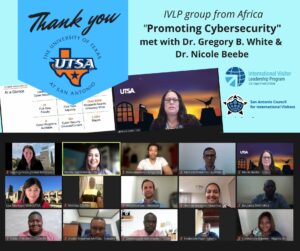In May of this year, for the first time ever the GasBuddy mobile app earned the achievement of most downloaded on the U.S. App Store. Overall, total downloads increased almost 20 fold compared to an average day earlier in the year. This was not simply a huge influx of people who wanted to see if they could save an extra three cents a gallon. Rather, a cyber attack on the Colonial Pipeline, the largest fuel pipeline in the U.S., caused a surge of panic buying amidst fears of an impending gas shortage.
In early September, Howard University in Washington, DC was forced to shut down and cancel classes after their networks had been compromised. They were quickly able to restart in-person instruction, however online and hybrid courses remained suspended for an extended period, as well as the campus-wide WiFi being out of commission. Both of these instances resulted from the same issue: a ransomware attack. Ransomware is a type of malware where the hackers threaten to shut down systems unless a ransom, usually through cryptocurrency, is paid.
“Imagine awakening one morning to learn that you can’t use your phone to place a call because the networks are down,” explains Foldestine Paye, a cybersecurity expert from Liberia. “Imagine not been able to communicate with families, coworkers, kids, schools, hospitals, etc. You decide to visit your favorite bank on Monday morning and are told that their networks are down.”
As part of Meridian’s vision of strengthening the world through collaboration, we have been working to engage the public and private sectors to help create a more secure digital world. Foldestine recently took part in the International Visitor Leadership Program (IVLP), “Promoting Cybersecurity”, that brought together 15 cybersecurity experts from across the African continent to virtually engage with local specialists in the field.
After meeting with various interlocuters, such as the Cybersecurity and Infrastructure Security Agency within the Department of Homeland Security and the John Deere Polk Country Manufacturing Facility in Des Moines, Iowa, Foldestine reflected on his experience. “After listening to the cyber experts from America during the Zoom meetings about promoting cybersecurity, it is clear that Africa is not demonstrating progress… The world as we know it is changing and we will have to change with it if we are to remain a vital member of the global community… As a continent, we need to prepare for the new frontier of warfare (cyber-attack) that’s coming.”
Overall, partnerships and collaboration were the key aspects emphasized. Confidence Staveley, Founder and Executive Director of the Cybersafe Foundation in Nigeria, highlighted the alliances that have come out of the experience. “The IVLP program afforded me the opportunity to meet with top representatives of UTSA [University of Texas at San Antonio]. We have now made significant progress in our partnership talks to bring experiential learning to the fellows at CyberGirls, the initiative under my NGO, Cybersafe Foundation.”

On the cultural side, Confidence referenced the importance of crossing linguistic divides to collaborate. “I also became more conscious of the language barrier within the [African] continent and am more willing to leverage technology like Google translate to communicate with my French-speaking peers; this is something I have never done before.”
Finally, Confidence echoed Foldestine’s sentiments by stating, “International partnerships are a must if we will win the war against cybercrime. The need to collaborate along the lines of cyber awareness, sharing best practices, intelligence, training, continent-wide policies/regulation, investigation/prosecution of cybercrimes, etc. cannot be overstated.”
To help create these networks, Meridian will continue to focus on connecting potential collaborators to strengthen engagement between the United States and the world. As cyber attacks continue to disrupt our daily lives, Foldestine concludes, “It is time to wake up because we are the change we seek, and change will not come from anyone else outside…It is up to us to come together; we need to be united. This program should not be one month or few weeks, this is a permanent network we need to build Africa. We need to work together to see how best we can promote cybersecurity in Africa.”
















